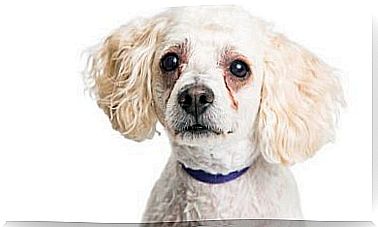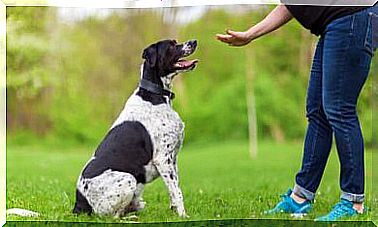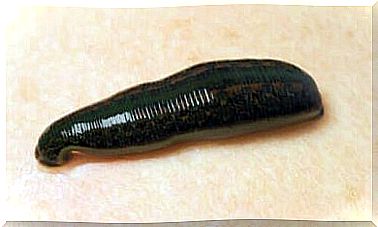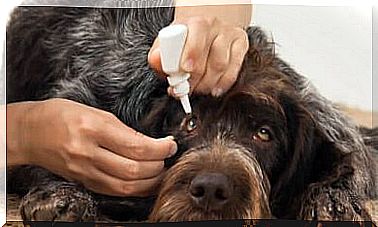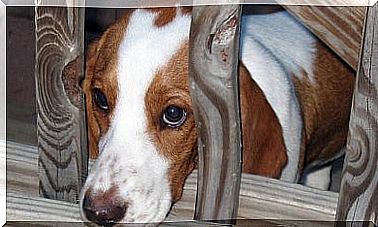Bunny As A Pet: Care And Hygiene
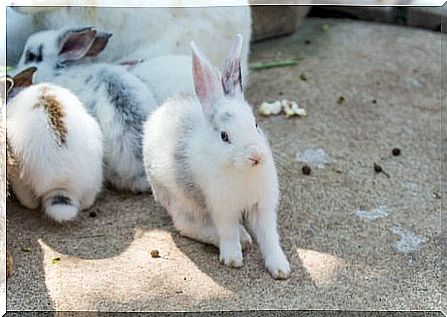
A rabbit as a pet is a great idea, because the animal will bring joy into your everyday life. Remember, however, that having a pet always means responsibility. The little ball of fur needs special care and hygiene to stay healthy. In today’s post, we’ll show you various things that you should consider.
Bunny as a pet: positive aspects
A rabbit as a pet is an excellent choice, especially for children. Bunnies are gentle, active, and playful. You can accompany children in various activities because they are always ready to jump around and discover new things. They don’t even need a lot of space.
Another very positive trait is that , much like cats and dogs, rabbits develop relationships and interact with owners. They are loving and crave tenderness, they love human company and they like to train together.
Rabbits are very intelligent and eager to learn. If properly encouraged, they can be raised like dogs. They come when you call them, recognize certain commands and can learn to do tricks.
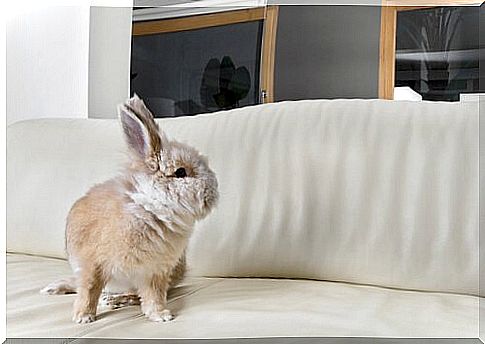
It is a good idea to learn about exercise options to teach the bunny certain things. In this way you can build an intimate relationship and keep the animal’s body and mind fit.
Bunny as a pet: care and hygiene
Although rabbits are very independent animals, they still need care, hygiene measures and, of course, proper nutrition. Then you will find the most important care tips to guarantee the health of your new friend and to ensure the right hygiene in your home.
-
Hair change
Rabbits lose their hair four times a year. To get rid of the hair falling out, you will need to brush the bunny daily during these times. This is necessary in both short-haired and long-haired breeds.
In addition to brushing the fur, it is a good idea to prevent possible allergies by regularly shedding hair around the house. This is important for yourself and also for the rabbit.
-
Cutting the claws
Rabbits have 5 claws on their front legs and 4 on their hind legs. All of them grow very quickly and naturally don’t wear out enough around the house, so you’ll want to trim or file your nails regularly.
However, this is not an easy task! The animal is likely to be restless and may injure itself or you. Therefore, if you have no experience, it is better to go to the vet to have your nails trimmed.
-
Cleaning the ears
As with dogs and cats, the ears of rabbits must be cleaned of cerumen. It’s best to do this once a week. Use cheesecloth and moisten it with a physiological solution. Be careful when doing this because the skin of the ears is very sensitive in rabbits.
-
eyes
The eyes must also be cleaned regularly with gauze and an appropriate solution or sterilized water.
If eye butter builds up in the corners of your eyes that is a different color than usual, or if there is eye mucus, it is best to take your long-eared ear to the vet right away!
-
Genital area
Many forget the importance of regularly cleaning rabbits’ genitals. However, you have to be very careful when doing this. Use a cloth moistened with a physiological solution. It’s best to do this at least once a week.
-
teeth
The wear and tear of teeth is fundamental to rabbit health. There are natural branches on the market that have been specially developed for the dental care of nibbling animals. You can also give your rabbit hay, which will prevent abnormalities. A veterinarian can help you make the right choice.
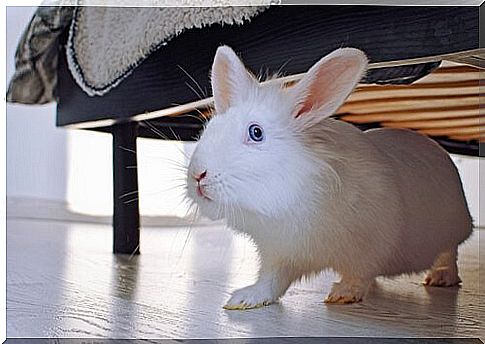
Can I bathe my rabbit?
It is a very sensitive matter. Bathing a bunny can be very stressful. If the animal is properly groomed and cleaned, bathing is usually not necessary.
If the rabbit is actually dirty, a cloth moistened with sterilized water is usually sufficient.
Hygiene in the rabbit cage or stable
Rabbits spend much of their lives in a cage or stable. This is your “apartment” and therefore it should be selected and furnished accordingly.
The little nibblers are naturally very clean. That is why hygiene in the cage is a very important aspect so that the animals can actually feel comfortable in it. You’ll need to thoroughly clean the cage and change the hay once a week.
The rabbit droppings, the feed and the water must be removed or replaced every day. This is the only way to prevent harmful microorganisms from spreading, which can endanger the animal and also the house residents.
Rabbits are very sensitive and can show various symptoms when they are not doing well: loss of appetite, diarrhea or changes in the coat can point to this.



